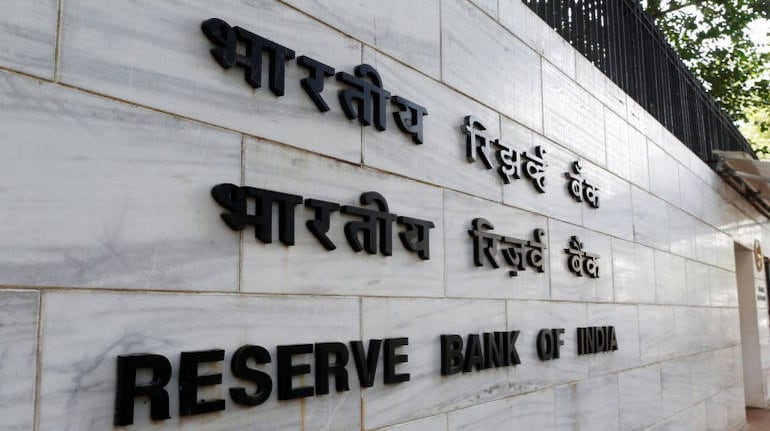



India has adopted a monetary policy framework from last year, which makes taming inflation the central bank’s primary priority. Interest rate-related decisions are now taken by an empowered monetary policy committee (MPC).
The six-member panel, constituted in September 2016, has three persons appointed by the central government while the rest, including the Governor, are from the RBI. It brainstorms for two days before announcing the decisions, including a commentary and outlook on inflation and growth.
Here is an explainer on what the MPC is and its scope of work:
What is the monetary policy framework?
In February 2015, the government and the RBI agreed to adopt a monetary policy framework that made cooling inflation the central bank’s main priority.
What targets have been set on inflation?
The RBI and the government have set a retail inflation target of 4 per cent for the next five years with an upper tolerance level of 6 percent and lower limit of 2 percent. Inflation levels above 6 percent will mean the economy has hit a danger zone. High inflation means prices are rapidly rising eroding people’s buying power as it makes the rupee go less far. Conversely, very low inflation levels can be symptomatic of an economy-wide slide because of low demand and muted investment activity.
RBI Credit Policy: How Interest Rates Work
What necessitated the change?
The move is primarily aimed at eliminating speculation in RBI’s interest rate decisions. The RBI has to juggle many roles, and, on many occasions it can lead to conflict of interests. For instance, when inflation is rising the central bank is generally expected to raise interest rates to slow down demand and tame price rise. But, the RBI is also the public debt manager. In its capacity as the government’s sole merchant banker and sovereign bond regulator, its aim is to maintain low interest rates. The new framework removes such ambiguities by making inflation targeting the central bank’s primary focus. Effectively, it implies that RBI will choose inflation management as its first choice should a toss-up were to be made between multiple goals.
When did RBI moot such a change?
RBI governor Urjit Patel has played a key in the framing of the new system. Patel, as a RBI deputy governor, headed a committee that in 2014 recommended targeting retail inflation to tame unstable prices, shifting the focus away from wholesale prices. Patel will be the first governor to oversee interest rate decisions by a monetary policy committee (MPC) under the new framework.
What is the MPC?
Under the monetary policy framework, a six-member panel chaired by the RBI governor decides on interest rates. The decision of the committee – three each nominated by the government and the central bank – is binding. The governor cannot override the panel’s decision by using a veto, but can cast a vote in case of a tie. The monetary policy review on October 4, 2016 (also Patel’s first policy after taking over as RBI Governor in September 2016) was the first to be overseen by the MPC.
What used to happen earlier?
In the earlier system, the governor was guided by the RBI’s Monetary Policy Department (MPD). Views of the Technical Advisory Committee (TAC), a panel of experts, were also factored in while deciding on repo rate—the rate at which the central bank lends to banks. The governor, however, enjoyed overriding powers on interest rate decisions.
Who are the members of the MPC?
The three government-nominated MPC members are: Chetan Ghate, professor at Indian Statistical Institute; Pami Dua, director at Delhi School of Economics; and Ravindra Dholakia, professor at Indian Institute of Management, Ahmedabad.
The three experts have been appointed for a period of four years.
The other members of the committee will include RBI governor Urjit Patel, deputy governor Viral Acharya, who is in charge of the monetary policy, and executive director Michael Patra.
How much do the MPC members earn?
The government appointees are paid Rs 1.5 lakh per meeting along with air travel and other reimbursements, but they need to observe a "silent period" seven days before and after the rate decision for "utmost confidentiality". The confidentiality clause also applies to the three RBI members, including the Governor.
How often does the MPC meet?
The MPC is required to meet at least four times a year. The RBI has been convening bi-monthly monetary policy review meetings, implying that the MPC has been meeting once in two months since October 2016
What is the legal sanctity new framework?
The Finance Bill, 2016 contained an amendment to the Reserve Bank of India (RBI) Act of 1934 to give a statutory basis to the monetary policy framewor
How are interest rates fixed in other countries?
A multi-member panel to decide on interest rates have become a standard practice in many matured economies, such as the USA and England. In the US, the 12-member Federal Open Market Committee or FOMC decides on the Fed funds rate. The seven board members of the FOMC are appointed by the President and ratified by the Senate. Five other members, who are heads of regional reserve banks are also member of the FOMC. Each member has one vote. The Bank of England’s monetary policy committee has nine members. These include the governor, three deputy governors and the chief economist of the Bank of England. Four external members are appointed by the Chancellor. Each member has one vote. The Treasury representative attends the meeting but has no vote.
Discover the latest Business News, Sensex, and Nifty updates. Obtain Personal Finance insights, tax queries, and expert opinions on Moneycontrol or download the Moneycontrol App to stay updated!
Find the best of Al News in one place, specially curated for you every weekend.
Stay on top of the latest tech trends and biggest startup news.